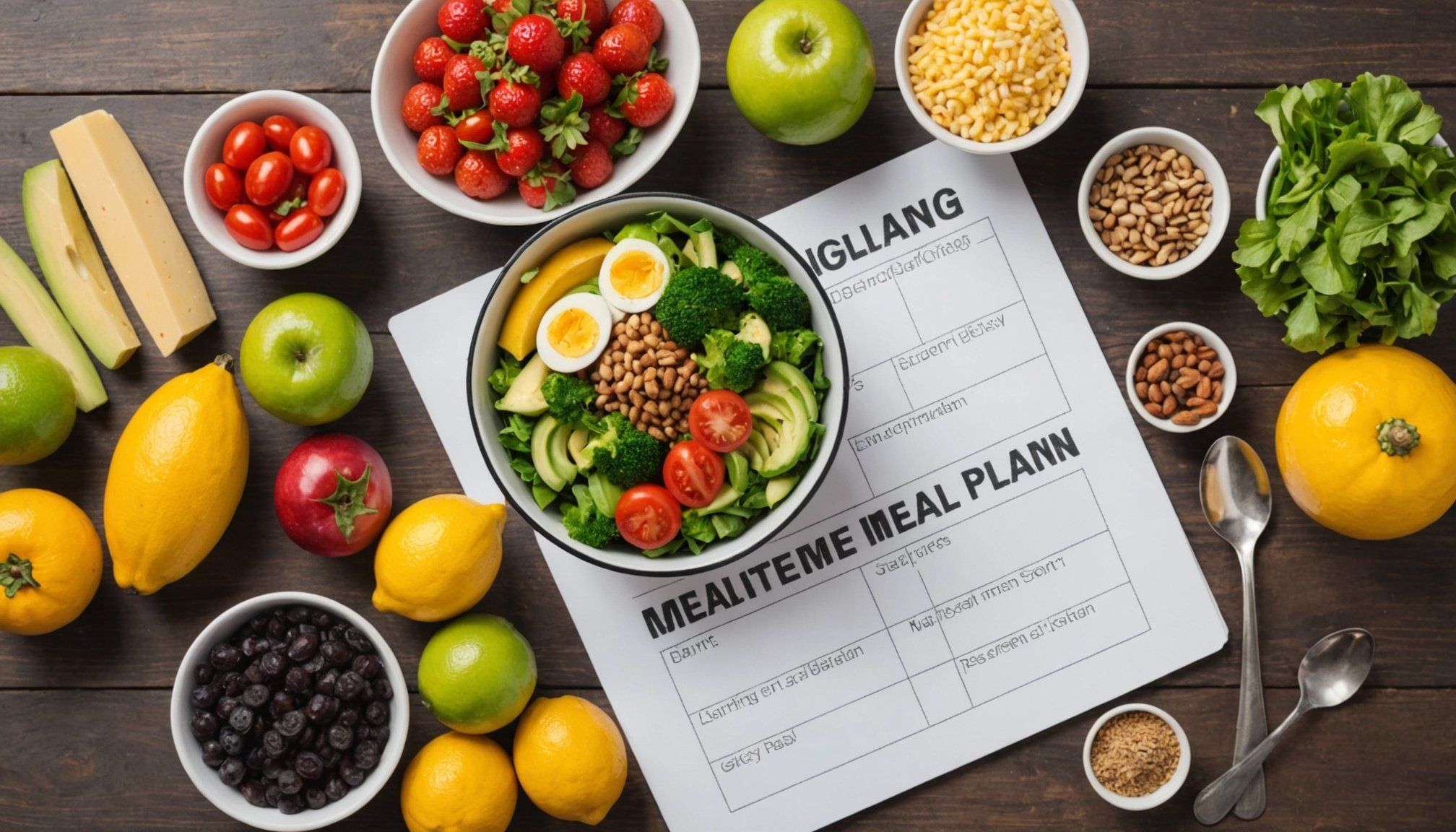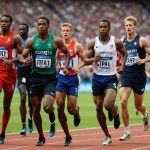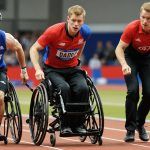Athletes are always seeking that extra edge in their training and competition. Whether you are a weekend warrior or a seasoned competitor, your nutrition plays a crucial role in your performance. One of the most effective ways to enhance your performance is by creating a balanced meal plan that supports your exercise routine. In this article, we will explore how a well-structured meal plan can elevate your training, improve your energy levels, and ultimately help you achieve your fitness goals.
Understanding the Role of Nutrition in Athletic Performance
Nutrition is the foundation of any successful training program. For athletes, the right diet is not just about maintaining a healthy weight but also about fueling their bodies for optimal performance. Protein, carbohydrates, and fats are the three macronutrients that should be thoughtfully included in your meal plan.
In the same genre : How can you create a balanced workout schedule that includes rest days?
Protein is essential for muscle repair and growth. When you engage in rigorous exercise, your muscles undergo stress and need adequate protein to recover. Foods rich in protein like chicken, fish, eggs, and legumes should be staples in your meal plan.
Carbohydrates serve as the primary source of energy for athletes. They provide the necessary fuel for high-intensity workouts and help sustain energy levels during longer training sessions. It is crucial to choose complex carbohydrates like whole grains, fruits, and vegetables, as they offer sustained energy release compared to simple sugars. By incorporating these into your meals, you can increase your stamina and endurance.
Also read : How can setting SMART goals transform your approach to fitness?
Fat is another vital component of your nutrition strategy. Healthy fats, such as those found in avocados, nuts, and olive oil, contribute to overall health and provide a concentrated source of energy. They also support hormone production, which can affect muscle growth and overall performance.
To maximize your athletic capabilities, a well-rounded approach to nutrition is necessary. Understanding the roles of these macronutrients can guide you in crafting a meal plan that not only supports your training but also enhances your overall health.
Crafting Your Balanced Meal Plan
Creating a balanced meal plan requires careful consideration of your individual energy needs, training schedule, and personal preferences. Start by calculating your daily caloric intake based on your exercise routine and overall goals. This can help you determine how much protein, carbohydrates, and fats you should consume on a daily basis.
Once you understand your caloric needs, it’s time to focus on meal timing. Pre- and post-workout meals are particularly important for maximizing your performance and recovery. A meal rich in carbohydrates and protein before your workout can boost your energy levels, while a recovery meal afterward can help repair your muscles and replenish glycogen stores.
For example, a pre-workout meal could consist of oatmeal topped with fruits and a scoop of protein powder, providing a good balance of carbohydrate and protein. After your workout, a smoothie made with Greek yogurt, spinach, and banana can deliver the necessary nutrients to aid recovery.
In addition to timing, focus on variety in your meal plan. Eating a range of foods ensures that you receive a spectrum of vitamins and minerals essential for optimal health. Include plenty of vegetables, fruits, lean proteins, whole grains, and healthy fats in your meals. Not only does this enhance your nutrition, but it also keeps your meals interesting and enjoyable.
Remember to stay hydrated as well. Water is crucial for maintaining bodily functions and can significantly affect your performance. Consider incorporating electrolyte-rich beverages, especially during long training sessions, to replenish lost minerals.
The Impact of Meal Frequency on Performance
Meal frequency can also play a role in supporting your athletic goals. Some athletes prefer to eat larger meals less frequently, while others benefit from smaller, more frequent meals throughout the day. The choice largely depends on personal preference, lifestyle, and how your body responds to various eating patterns.
For many athletes, eating every three to four hours can help maintain energy levels and prevent fatigue. This approach makes it easier to meet your daily caloric and macronutrient needs without feeling overly full. It also allows for consistent intake of nutrients that are vital for muscle recovery and overall health.
When planning your meals, consider incorporating snacks that are rich in protein and carbohydrates. Options like Greek yogurt with berries, nut butter on whole-grain toast, or a handful of nuts and fruit can bridge the gap between meals and provide the necessary fuel for your training sessions.
On the other hand, some athletes may find success in consuming fewer meals with larger portions. This method can work well if it aligns with your daily schedule and helps you feel satisfied. However, be cautious of the timing of your meals relative to your exercise sessions to avoid feeling sluggish or under-fueled.
Experiment with different meal frequencies to find what works best for you. Listen to your body and adjust your eating habits to ensure you are properly nourished for your workouts and recovery.
Common Dietary Mistakes Athletes Should Avoid
While striving for the ideal meal plan, athletes often fall into common traps that can hinder their performance. One of the most prevalent mistakes is neglecting carbohydrate intake. Some athletes believe that reducing carbohydrate consumption will help with weight management, but this can lead to decreased energy levels and compromised exercise intensity.
Another common error is relying too heavily on processed foods. While convenience is a factor, these foods often lack essential nutrients and can negatively impact your overall health. Instead, focus on whole foods that provide the necessary macronutrients and micronutrients to support your training.
Many athletes also overlook the importance of hydration. Failing to drink enough water throughout the day can lead to dehydration, which severely affects physical performance and recovery. Be proactive in your hydration strategy, making sure to drink water regularly and consume fluids that replenish electrolytes during and after workouts.
Lastly, don’t ignore the role of fat in your diet. Avoiding healthy fats can lead to hormonal imbalances and hamper your overall well-being. Include sources of healthy fats to ensure you maintain a balanced diet that supports both your physical and mental health.
By recognizing and avoiding these dietary mistakes, you can set yourself up for greater success in your athletic pursuits. Focus on a balanced approach to nutrition that prioritizes whole foods and meets your body’s needs.
In conclusion, creating a balanced meal plan is a fundamental component of enhancing your sports performance. By understanding the role of nutrients, crafting a thoughtful meal strategy, and avoiding common dietary pitfalls, you can optimize your nutrition to fuel your body effectively. Whether you are training for a specific event or simply looking to improve your athletic capabilities, the right meal plan can make all the difference. Prioritize your health and nutrition and enjoy the benefits of improved performance.











